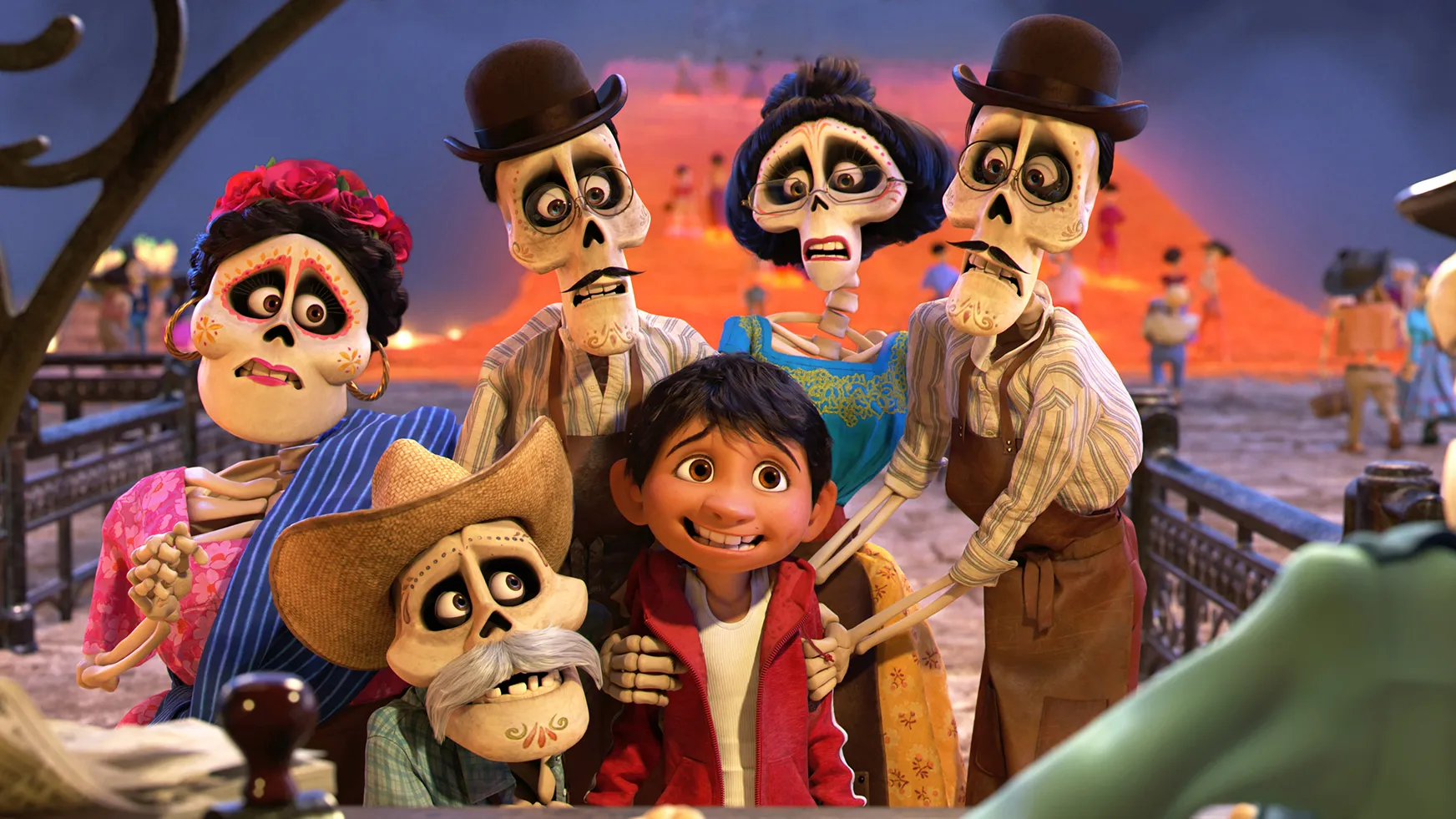Happy National Hispanic Heritage Month
- Onni Creative

- Sep 15, 2023
- 4 min read
Updated: Oct 5, 2023

This National Hispanic Heritage Month we’re diving into Hispanic film history in the USA, the origins of the month, and how you can support Hispanic artists & storytellers throughout the year!
Hispanic representation in film began before the solidified and centralized film industry we know today, but the most prevalent & lasting early representations were based on romanticized action-packed Westerns with themes of manifest destiny. Foes of the cowboy heroes in these films were frequently presented as Indigenous Americans and/or Hispanic Americans. Unfortunately, these characters were portrayed as lazy & unethical and played by white actors in Brown & Blackface.
By the 1930s, many Hispanic Americans began to boycott films with these types of portrayals, which led to some fairer-skinned Hispanic actors being cast in Hollywood movie roles. These roles were typically supporting roles, but progress was slowly being made.
The 1940s ushered in the Golden Age of Mexican Cinema with films like Flor Silvestre, María Candelaria, Enamorada, La Perla, Río Escondido, and Maclovia.
Bettmann/Getty Images mptv.com
In 1951, Puerto Rican actor José Ferrer was the first Hispanic actor to win an Oscar for Best Actor for his titular role in Cyrano. In 1962, Rita Morena was the first Hispanic actress to win an Oscar for Best Supporting Actress as Anita in West Side Story.
In 1968, California Congressman George E. Brown introduced legislation to recognize the contributions of the Hispanic community in the USA. Congress passed a law that urged the President to issue a proclamation annually on Sept 15th to recognize Hispanic Hispanic week. President Lyndon B. Johnson issued the first presidential proclamation that very day.
Sept 15th, is not an arbitrary date–it coincides with the Independence Day of Costa Rica, El Salvador, Guatemala, and Honduras from Spain. (Mexico, Chile, and Belize also celebrate their Independence Day’s during Hispanic Heritage Month.)
By 1988, President H. W. Bush proclaimed National Hispanic Heritage Month from Sept 15th - Oct 15th. The 1980s were coined the “Decade of the Hispanic” by the media with the premiere of films like Zoot Suit, La Bomba, El Norte, Born in East L.A, and Stand and Deliver, of which Edward James Olmos won an Oscar for Best Actor.
The 1990s & 2000s saw more progress with authentic Hispanic storytelling in films like El Mariachi, American Me, Selena, and Real Women Have Curves.
Recently, from franchises to blockbusters to Oscar nominated films, Hispanic storytelling has become more prominent with Encanto, Spider-Man: Into the Spiderverse, In the Heights, Roma, and Coco, but there is still much room for progress in the film industry and more stories to tell.
We at OC want to continue to uplift Hispanic artists & filmmakers through visibility, amplification, and partnership. We've created a list of some ways for you to support and uplift Hispanic artists all year long:
1. Share their work on social media: One of the easiest and most effective ways to support Hispanic artists is to share their work on your social media platforms. Use your theater account to promote upcoming titles to help increase their visibility and reach a wider audience. Don't forget to tag the artists and use relevant hashtags to maximize exposure.
2. Attend their exhibits and performances: Whenever possible, make an effort to attend exhibits, performances, or shows featuring Hispanic artists. By showing up and engaging with their work, you not only support them financially but also contribute to the overall recognition of their talent.
3. Purchase their artwork or creations: If you come across a piece of artwork or a creation by a Hispanic artist that resonates with you, consider purchasing it. Not only will you be supporting the artist directly, but you'll also be able to enjoy their work in your everyday life, creating a meaningful connection.
4. Engage in conversations about diversity: Take part in discussions and conversations about diversity and representation in the exhibition & film industry. By actively participating, you can raise awareness about the importance of amplifying Hispanic artists and their stories, and inspire others to do the same.
5. Support organizations that promote diversity: Look for and support organizations that advocate for diversity and inclusion in the arts. These organizations often provide resources, funding, and platforms for Hispanic artists to showcase their work and thrive (ex. The Latino Film Institute, Remezcla, Latino Filmmakers Network).
6. Watch and recommend Hispanic films: Seek out films written, directed, or featuring Hispanic artists and make a point to watch them. By supporting their work at the box office, at film festivals, or screening those films, you're showing the industry that there is an audience for diverse stories and perspectives. After watching, don't forget to recommend these films to friends, family, and on social media, spreading the word about the incredible talent behind them. Additionally, you can support Hispanic film festivals that showcase and celebrate the work of Hispanic filmmakers (ex. Hispanic Film Festival, Chicago Latino Film Festival, Los Angeles Latino International Film Festival). Attend these festivals or explore their virtual screenings to experience a diverse range of stories and voices. By actively engaging with Hispanic artists in the film industry, you're not only supporting their careers but also contributing to the overall representation and inclusion within the entertainment space.
7. Screen Hispanic films throughout the month: Continue to amplify and provide visibility for Hispanic storytellers by hosting Hispanic Heritage month screenings of classic Hispanic films or create a Hispanic movie series.
Remember, supporting Hispanic artists doesn't have to be limited to just one month. Make it a continuous effort throughout the year. By embracing diversity in the creative industry, we can create a more inclusive and vibrant artistic landscape.
Want to receive more content like this?
Sign up for our emails to receive ideas straight to your inbox.
Sources



























